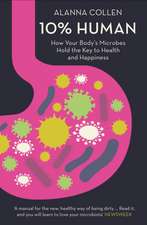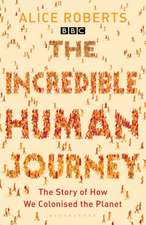Human Biology and Social Inequality: Society for the Study of Human Biology Symposium Series, cartea 39
Editat de Simon S. Strickland, Prakash S. Shettyen Limba Engleză Paperback – 18 mar 2009
| Toate formatele și edițiile | Preț | Express |
|---|---|---|
| Paperback (1) | 397.55 lei 6-8 săpt. | |
| Cambridge University Press – 18 mar 2009 | 397.55 lei 6-8 săpt. | |
| Hardback (1) | 892.36 lei 6-8 săpt. | |
| Cambridge University Press – 27 mai 1998 | 892.36 lei 6-8 săpt. |
Din seria Society for the Study of Human Biology Symposium Series
-
 Preț: 348.85 lei
Preț: 348.85 lei -
 Preț: 311.99 lei
Preț: 311.99 lei -
 Preț: 313.72 lei
Preț: 313.72 lei -
 Preț: 350.58 lei
Preț: 350.58 lei -
 Preț: 316.14 lei
Preț: 316.14 lei -
 Preț: 320.88 lei
Preț: 320.88 lei - 5%
 Preț: 394.83 lei
Preț: 394.83 lei -
 Preț: 306.97 lei
Preț: 306.97 lei -
 Preț: 375.47 lei
Preț: 375.47 lei -
 Preț: 372.97 lei
Preț: 372.97 lei -
 Preț: 322.79 lei
Preț: 322.79 lei -
 Preț: 393.70 lei
Preț: 393.70 lei -
 Preț: 310.45 lei
Preț: 310.45 lei -
 Preț: 445.61 lei
Preț: 445.61 lei -
 Preț: 308.77 lei
Preț: 308.77 lei
Preț: 397.55 lei
Nou
Puncte Express: 596
Preț estimativ în valută:
76.07€ • 79.63$ • 63.32£
76.07€ • 79.63$ • 63.32£
Carte tipărită la comandă
Livrare economică 31 martie-14 aprilie
Preluare comenzi: 021 569.72.76
Specificații
ISBN-13: 9780521104012
ISBN-10: 0521104017
Pagini: 360
Ilustrații: 14 b/w illus. 34 tables
Dimensiuni: 152 x 229 x 20 mm
Greutate: 0.53 kg
Editura: Cambridge University Press
Colecția Cambridge University Press
Seria Society for the Study of Human Biology Symposium Series
Locul publicării:Cambridge, United Kingdom
ISBN-10: 0521104017
Pagini: 360
Ilustrații: 14 b/w illus. 34 tables
Dimensiuni: 152 x 229 x 20 mm
Greutate: 0.53 kg
Editura: Cambridge University Press
Colecția Cambridge University Press
Seria Society for the Study of Human Biology Symposium Series
Locul publicării:Cambridge, United Kingdom
Cuprins
1. Human biology and social inequality Simon Strickland and Prakash Shetty; 2. Social inequalities and health in the contemporary world: comparative overview Sally MacIntyre; 3. Accumulation of health risks across social groups in a national longitudinal study Chris Power and Sharon Matthews; 4. Equity, social cohesion and health Richard G. Wilkinson; 5. Growth and maturation problems of children and social inequality during economic liberalisation in Central and Eastern Europe Otto G. Eiben; 6. Social inequalities in the re-emergence of infectious disease John D. H. Porter and Jessica A. Ogden; 7. Environmental health, social inequality and biological differences Lawrence M. Schell and Stefan A. Czerwinski; 8. Educational potential and attainment: long-term implications of childhood under-nutrition Sara Stinson; 9. Affluence in developing countries and natural selection in humans Kerin O'Dea; 10. Physical activity, sport, social status and Darwinian fitness Robert M. Malina; 11. Biological correlates of social and geographical mobility in humans: an overview C. G. Nicholas Mascie-Tyalor; 12. How female reproductive decisions cause social inequality in male reproductive fitness: evidence from eighteenth- and nineteenth-century Germany Eckhart Voland and Athanasios Chasiotis; 13. Environmental constraints, social inequality and reproductive success. A case-study in Morocco Emile Crognier; 14. The emergence of health and social inequalities in the archaeological record Mark Nathan Cohen; 15. Eugenics and population policies A. H. Bittles and Y-Y. Chew; 16. The policy implications of health inequalities in developing countries Carolyn Stephens; 17. Policy options for managing health inequalities in industrial and post-industrial countries Yoav Ben-Shlomo and Michael G. Marmot; Index.
Recenzii
"...the individual papers provide quite useful reviews and information and, taken together, make an important contribution to an underdeveloped field of human biology." American Journal of Human Biology
Descriere
This book reviews why measures of biological variation have long been associated with the indices of social inequality.









